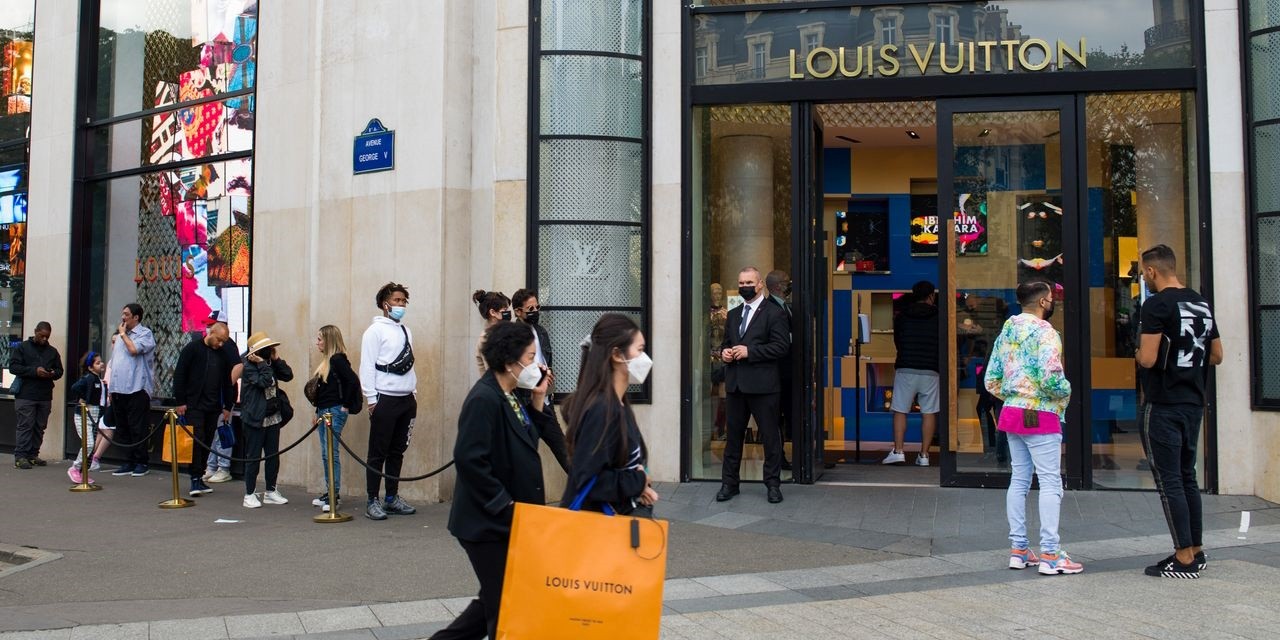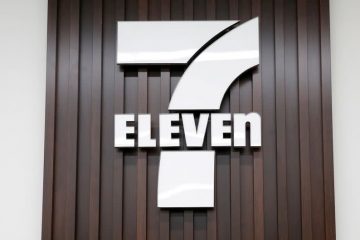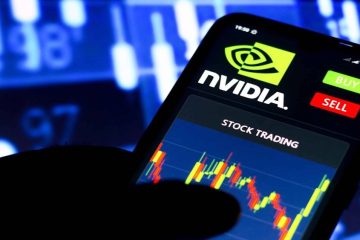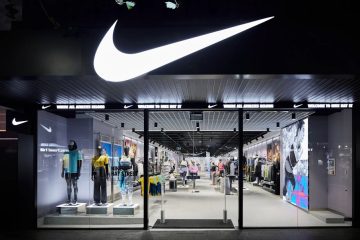LVMH can’t afford to back out of China just yet

At the Avenue Montaigne headquarters of his luxury empire, Bernard Arnault has established a habit of gathering his inner circle for thorough briefings on a crucial topic: China, for the past year.
Individuals present at the meeting recount how a former economic advisor to Beijing cautioned Arnault and his group that the elderly population in China posed a major threat to Arnault’s luxury firm, LVMH. The adviser predicted that the propensity for Chinese customers to conserve money rather than spend it on luxury items would become more pronounced with age. The potential for China to invade Taiwan was another area of expertise; such an invasion would disrupt global trade and trigger a catastrophe on a global scale.
The European continent is the seat of Arnault’s empire, but China has been LVMH’s growth engine for the last 30 years.
Traveling to Paris and other fashion capitals in search of handbags was a popular pastime for Chinese customers. However, when the epidemic prevented them from traveling, they went to museum-size boutiques in China that carried Louis Vuitton, Dior, and other names developed by LVMH in recent decades. With China contributing over 20% of LVMH’s worldwide revenues, the emergence of the well-heeled Chinese consumer revolutionized the luxury sector.
The Chinese economy has hit a wall, and tensions in the international arena are on the rise. A quarter of China’s gross domestic product is tied to the real estate industry, and it is in a precarious position. Last year, the youth unemployment rate reached all-time highs.
Foreign companies have fled Hong Kong as a result of the government’s crackdown. Companies are cutting down on their ties to China as a result of the cold war between the two countries, which is escalating as each sees the other as a major economic and political competitor.
Despite the fact that Arnault has been deposed as the wealthiest man in the world and LVMH shares have been whipsawed by uncertainty, he has chosen a different path.
According to sources familiar with the case, Arnault requested that LVMH executives reconsider their planned investments while in the nation last summer. There were several postponements, but no cancellations of projects. According to one LVMH official, the exercise reminded them of a business rule that Arnault follows: “In times of uncertainty, be patient.”
The advantages of expanding into China, according to Arnault, exceed the disadvantages. Arnault has organized his horde of designers to go after the hundreds of millions of new high-end customers that are certain to pop up in that region in the next years.
Arnault appointed hip-hop mogul Pharrell Williams as Louis Vuitton’s menswear designer last year. Williams stated, “I don’t know that the world could survive without Hong Kong and mainland China, period.” So went Williams’ statement.
His remarks came just days before a November fashion show on the city’s famous waterfront promenade, which he said would help reestablish Hong Kong as a global fashion powerhouse and boost sales for LVMH. At the event, which was attended by a plethora of Chinese celebrities, LVMH demonstrated its determination to attract Chinese consumers and establish a presence in the area.
“China comes after China.”
The Chinese market for high-end goods is expanding, and it is already the world’s second-largest. Morgan Stanley reports that in 2022, Chinese consumers spent $50 on luxury items per capita. While in South Korea it’s $325 and in the US it’s $280. One mall in Beijing is still the main hub for high-end retail therapy.
According to research from consultancy Bain, China is projected to account for between 23 and 40 percent of global luxury spending by 2030. The head of finance at LVMH informed investors in January that mainland Chinese expenditure on luxury products had risen since 2019. “At the maximum of what we can do to satisfy the customer,” Arnault said, describing the crowded state of the conglomerate’s boutiques in China.
“People always ask me about the next big luxury market. After China, then? The head of the LVMH cognac brand Hennessy, Laurent Boillot, made the statement. As I say it every time, “there is China after China.”
Compared to other Western corporations and automakers, LVMH has less exposure to China due to its lack of strong manufacturing operations in the country. The majority of its accessories, including purses and jewelry, are made in factories located in Europe. With a workforce of 28,000 and 1,300 outlets mostly on five- to seven-year leases, the majority of the company’s assets in China are concentrated there.
Despite this, LVMH has renovated its Beijing store and extensively invested in its other flagships around the nation to make them spectacular. Hainan, an island off the coast of southern China, is currently being developed by the Chinese government into a popular destination for high-end tourism and duty-free shopping. Louis Vuitton is constructing a glittering front for its flagship store there. The island will also be home to a shopping and entertainment complex planned by LVMH, whose duty-free arm has called the project a “unprecedented investment.” By 2030, the project aims to draw in 16 million tourists and 1,000 premium labels.
LVMH played a key role in the establishment of China’s massive market for conspicuous consumerism, which has since taken root—a challenging feat for a populace governed by the Communist Party of China, which abhors shows of extravagant riches.
Cognac sales plummeted in 2012, when Chinese leader Xi Jinping began an anticorruption campaign that included a crackdown on drunken banquets and extravagant gift-giving. A favorite among China’s expanding middle class is Hennessy cognac, the French liquor that accounts for about 45 percent of global sales.
A resurgence in sales has been witnessed as the beverage gained popularity among China’s youthful, upwardly mobile customers. However, in January, the Chinese government initiated an antidumping inquiry into EU-imported brandy, further shocking LVMH. At a time when Chinese automakers are trying to steal customers from European companies like Renault and Peugeot, the EU has launched its own probe into Chinese subsidies for electric-vehicle makers, leading many to believe that this is revenge.
Arnault and his family have shown their dedication to the country through thick and thin. Ludovic Watine-Arnault, nephew of Arnault, went to Shanghai in November to attend the China International Import Expo, a major venue for establishing commercial relations with the West.
One of the messages that Watine-Arnault brought from his uncle was “a message of friendship and respect first and foremost for China, its government and its people.” He informed the audience that he had come bringing this message.
Also, according to Watine-Arnault, LVMH is here to stay. “For many of our brands China is a key market and one for which they must give their all,” she added.
Emerging retail centers
While most of his competitors were still fixated on the American and European markets, Arnault made headway in China.
In 1992, a bold step for a country where most people rode bicycles to work and where flashy displays of wealth were unheard of, Louis Vuitton opened a boutique at the Palace Hotel in Beijing. The gamble paid off, and the boutique soon started outselling some of Vuitton’s larger European stores—a Louis Vuitton item was a favorite for the traditional gift-giving in China’s government and enterprises.
The next decades saw the proliferation of shopping malls around China, with high-end retailers betting on the country’s expanding middle class and flooding the market with massive investments. However, Chinese consumers sought for arbitrage opportunities overseas due to the country’s heavy luxury tax, which made domestic goods as much as 40% more expensive than their European counterparts. Department shops and boutiques in New York, Paris, Hong Kong, and Tokyo were remodeled to accommodate the influx of Chinese customers drawn by luxury products.
Reductions to the luxury tax occurred gradually over time. Chinese consumers who were unable to travel during the epidemic shopped at home, leading to a massive increase in mainland sales. In terms of sales per square footage, Chinese malls suddenly became among the world’s most productive.
LVMH flooded China with cash as a response. During COVID-19, Louis Vuitton hired over 30% more people in China. It expanded its retail locations and put resources into educating its sales staff.
“See LV,” a touring exhibition that takes visitors on an interactive journey through Louis Vuitton’s 160-year history, made its debut in Wuhan in the fall of 2020, a city where the spread of COVID-19 had subsided. Hundreds of fans braved the rain on opening night to see Zhu Yilong, a Wuhan-born actor and new Louis Vuitton brand ambassador, as he made his debut.
Westerners’ post-pandemic surge in luxury spending started to taper off around the beginning of 2023, and China appeared ready to take over. Speculators staked massively on a spike after Beijing loosened border controls, sending share prices of luxury firms surging.
Chinese officials also seemed to have changed their tone, according to executives. As part of larger efforts to increase consumer spending and attract foreign investment, they seemed more receptive to collaborating closely with the luxury label than they had been before. Listen, we are available for business, we are interested in doing business, let’s work together,'” they returned with. An LVMH executive at the senior level expressed their friendship for the company.
Chinese business minister Wang Wentao met with Christian Dior founder Bernard Arnault and top lieutenants at the fashion house’s Avenue Montaigne store in Paris in April. Among those in attendance was Delphine Arnault, Bernard’s daughter and the head of Christian Dior. Wang informed the group that he anticipated a resurgence in Chinese tourism to Europe in the near future.
Welcome, pop star!
After the pandemic, Arnault finally made it to China in June. Wherever the 74-year-old Frenchman went with his youngest son, Jean Arnault, he was welcomed like a pop star. People flocked around him for selfies, and some moms even wanted him to hold their newborns so they could feel his good fortune.
Jean Arnault, head of Louis Vuitton’s watch division, expressed his belief that the Chinese market and consumers are exceedingly receptive and delighted by the reopening of doors.
The reception was in stark contrast to the scorn that Arnault had endured in France. Protesters numbering in the tens of thousands swept the streets, demanding that the wealthy pay a higher share of taxes in response to calls for an earlier retirement age. Hundreds had surrounded the Paris headquarters of LVMH.
While touring LVMH boutiques, Arnault was leisurely. He insisted on altering the façade of the Louis Vuitton flagship store in Beijing, which will put out the inauguration of the store by a few months. He gushed over the Shanghai LVMH staff and joked that they could do without the Parisian bosses.
We were going to bring a whole team out here from headquarters, but you’ve been running things smoothly for the past three years without us. “Clearly, you aren’t in need of our assistance!” he exclaimed.
The decline in China was still too big for Arnault to disregard. Even with the trend normalizing in the months leading up to Arnault’s visit, he still had a hard time grasping Chinese travel trends, such as fewer shopping excursions than in 2019 and significantly higher expenditure by those who did go shopping. How that would influence sales in China was something the corporation had to figure out.
He gathered around his son Jean and daughter Delphine, together with Pietro Beccari, CEO of Louis Vuitton, and other top executives from the fashion house in the area. According to those in the know, the group reached consensus that China will eventually become a mature luxury market. However, they also agreed that the country’s economic troubles would cause a significant delay in its development, maybe by several years compared to earlier predictions.
According to the sources, Arnault has opted to put a hold on multiple investments in the nation. The corporation delayed the conclusion of one project in Hainan and postponed another in Shanghai.
When Louis Vuitton finally staged its fashion show in Hong Kong in November, it was already on thin ice. This was Hong Kong’s first big concert since Beijing’s repression of opposition rallies in 2019 further cemented the Chinese capital’s control over the territory. Concerned about the tightening of security in the financial hub, international corporations began to leave Hong Kong in small numbers.
The personnel at Louis Vuitton checked the guest list, which included “friends of Pharrell,” for any indication that any of the invited celebrities had made any political statements about Hong Kong.
Local superstars who are wary of venturing outside of Beijing usually grace China’s fashion shows. On the other hand, American superstars are no strangers to trouble. After Sharon Stone expressed her displeasure with China’s treatment of Tibet in 2008, LVMH removed her from Christian Dior’s Chinese advertising.
Nobody needs to alter their opinions; we do. One LVMH official stated before the Hong Kong event that all they need is for them to keep quiet while they’re here.
During the performance, the city’s waterfront promenade was transformed into a sandy beachfront. Beccari, CEO of Louis Vuitton, hugged Pusha T, a rapper and Williams’ close friend, as fifty ukulele players strung. Sitting close by were the members of the Chinese boy band TNT, as well as actors Gong Jun and Bai Jingting.
Williams’s assortment was replete with allusions to the sea. Fisherman sandals, sunglasses, bucket hats, and navy coats embellished with pearl buttons were worn by the models. One sported a varsity jacket with shell embroidery, a sailor collar, and a zipper that could be fastened into a hoodie.
Wearing a Louis Vuitton leather jacket embroidered with dragons and stitched with each of his city destinations, Williams traveled to Chengdu, Shanghai, and Beijing after the presentation.
In his remarks, Williams acknowledged the hardships endured by Asian Americans. “The strength and resilience remain evident, even when confined to a room for three and a half years with no freedom of movement.”










